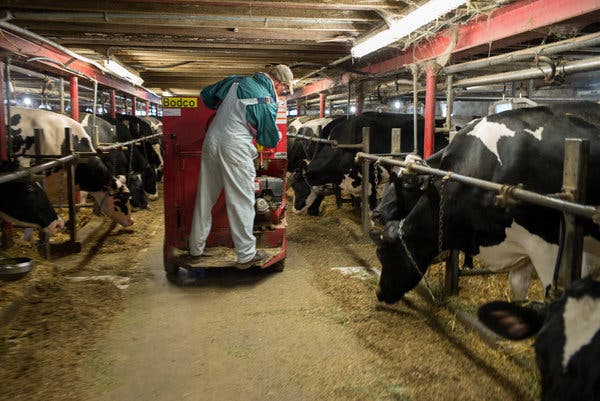The stage has been set. The Higher Level Expert Group on Milk has made 7 recommendations to amend the European dairy industry. The European Milk Board (EMB) called them off-target. The European Dairy Association (EDA) questioned their view of the industry. The Commissioner promised to take them under advisement before the end of the year. Is 2011 looking like a year that will grant European farmers more countervailing power in the marketplace, and achieve EU dairy policy reform, or will processors and retails come out ahead again?
The High Level Group was formed a year ago in response to the dairy crises that affected producers across the globe. In its report it listed seven key recommendations for Dacian Ciolos, the European Commissioner of Agriculture and Rural

Development, to take under advisement. The seven principles, as summarized by thedairysite.com, are as follows:
- Contractual relationships between milk producers and milk processors: Enhancement of formal written contracts, made in advance, to cover deliveries of raw milk.
- Collective bargaining power of producers: Possible proposal for provision to allow producer organisations constituted by dairy farmers to negotiate jointly their contract terms, including price, with a dairy.
- The possible role of interbranch organisations in the dairy sector: Examination of whether any of the current provisions for interprofessional organisations in the fruit & vegetables sector could also be applicable in the dairy sector.
- Transparency in the dairy supply chain: Further elaboration of the European Food Price Monitoring Tool, and a look at the provision of more information (e.g. on volumes of dairy products) by EUROSTAT & national statistics offices.
- Market measures and futures: Consideration of “green box compatible” instruments to reduce income volatility, including possibly facilitating the use of futures markets, in particular via targeted training programmes.
- Marketing standards and origin labelling: Ongoing Commission work on labelling should consider the feasibility of different options for “place of farming” labelling for dairy products and should seek distinct labelling for imitation dairy products.
- Innovation and research: Improvement in communicating existing possibilities for innovation and research within the existing framework of Rural Development and research framework programmes. Stakeholders should define clear research priorities for the dairy sector in order to allow better coordination of national & Community research programmes.
Reaction to the findings of the HLG have been mixed, but few entirely positive. The EDA, the body that represents the processors, expressed concern over a single set of contracts being imposed for all farmer-manufacturer relationships. Dairy UK wants further clarification in relation to where producer organisations stand in regards to collective bargaining power, and what their role will be under the next interpretation of anti-competition law. The European Milk Board, formed by producers, feels that the proposals don’t go far enough to meeting the farmer’s needs but does support strengthening the legal basis for producer organisations and better product labelling.
22 of 27 EU states advocated the proposal, with opposition coming from Sweden, Denmark, the Netherlands and the UK. If the commission were to take the HLG’s propositions to a vote, the majority would be enough to pass it.
Those concerned with the profitably of dairy farming in the EU unanimously agree on the need for farmers to be able to achieve countervailing market power, an issue that will become increasingly consequential as milk quotas continue to be phased out by 2015. The European Commission, which relentless pushed for a market-based pricing system, must now find a way to effectively achieve agency in the market for its farmers in the face of processor and retailer power imbalance that is common in other dairy industries across the world.

